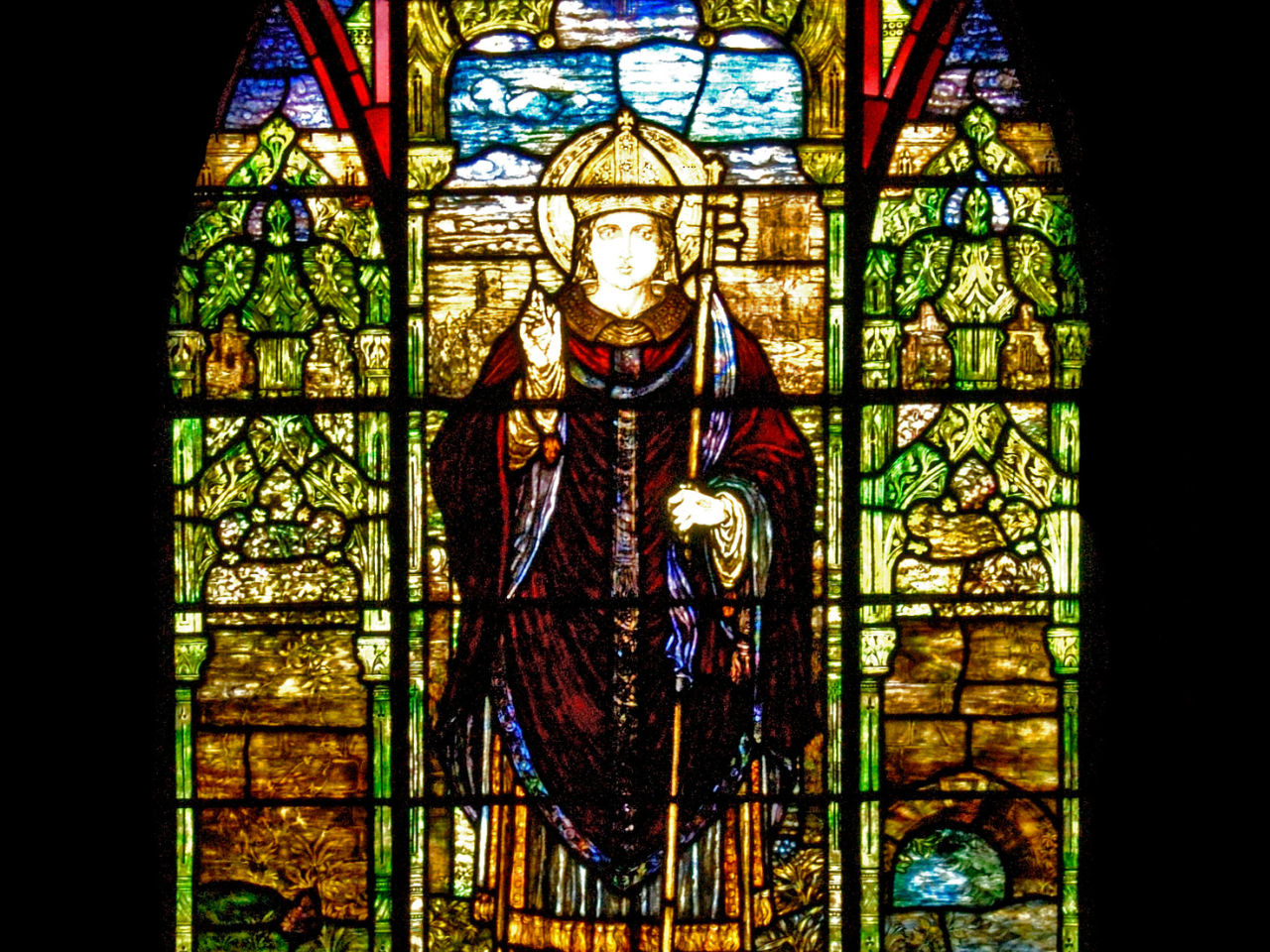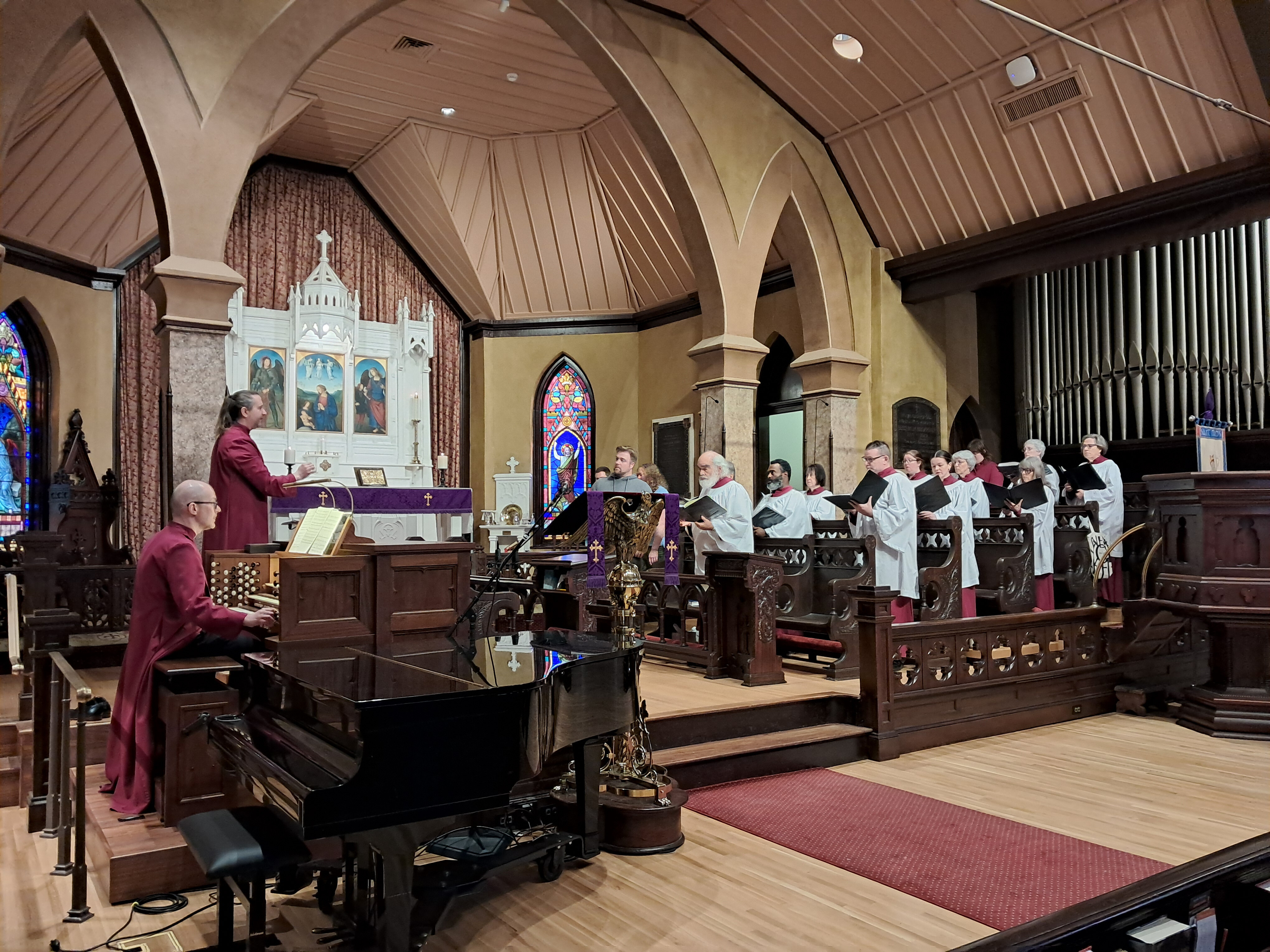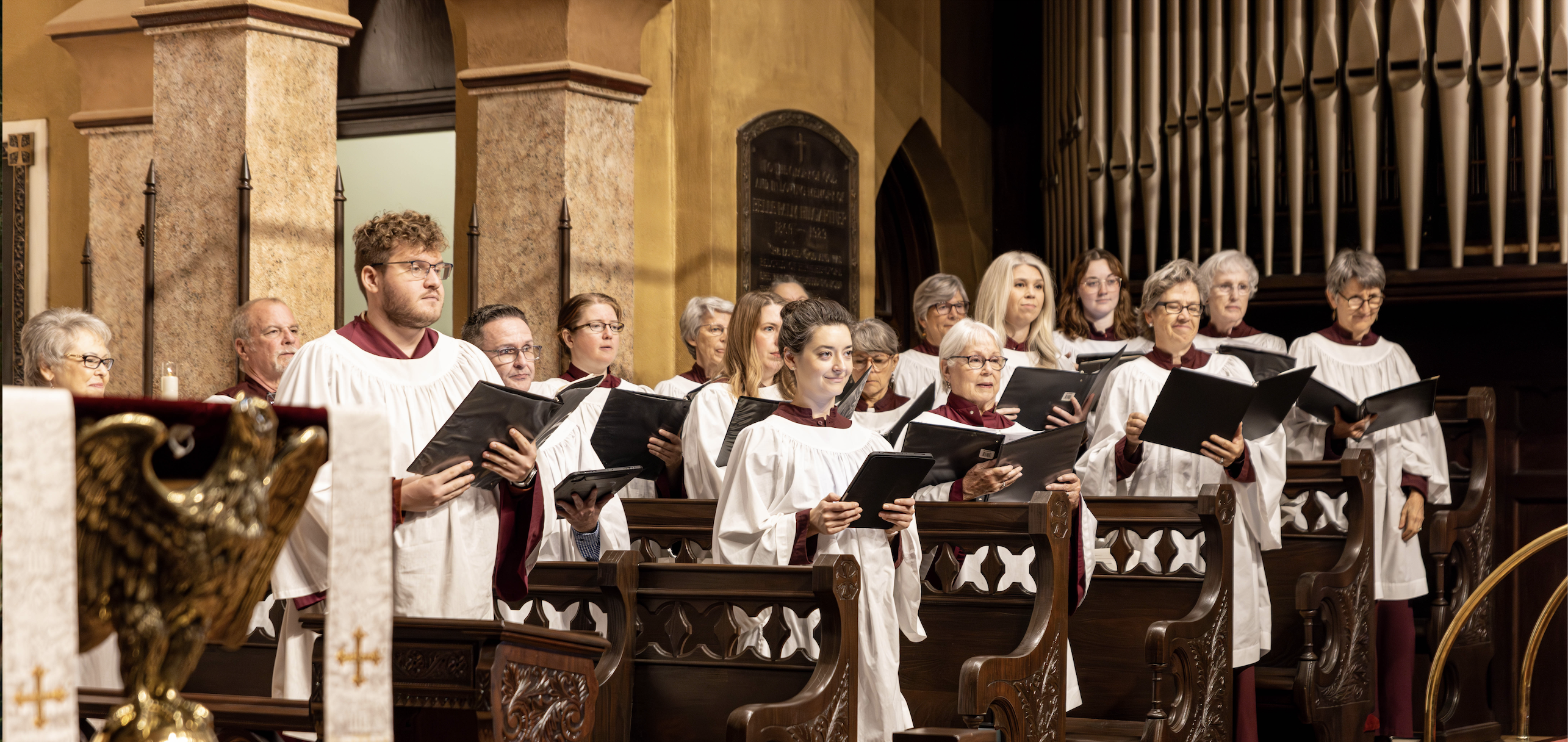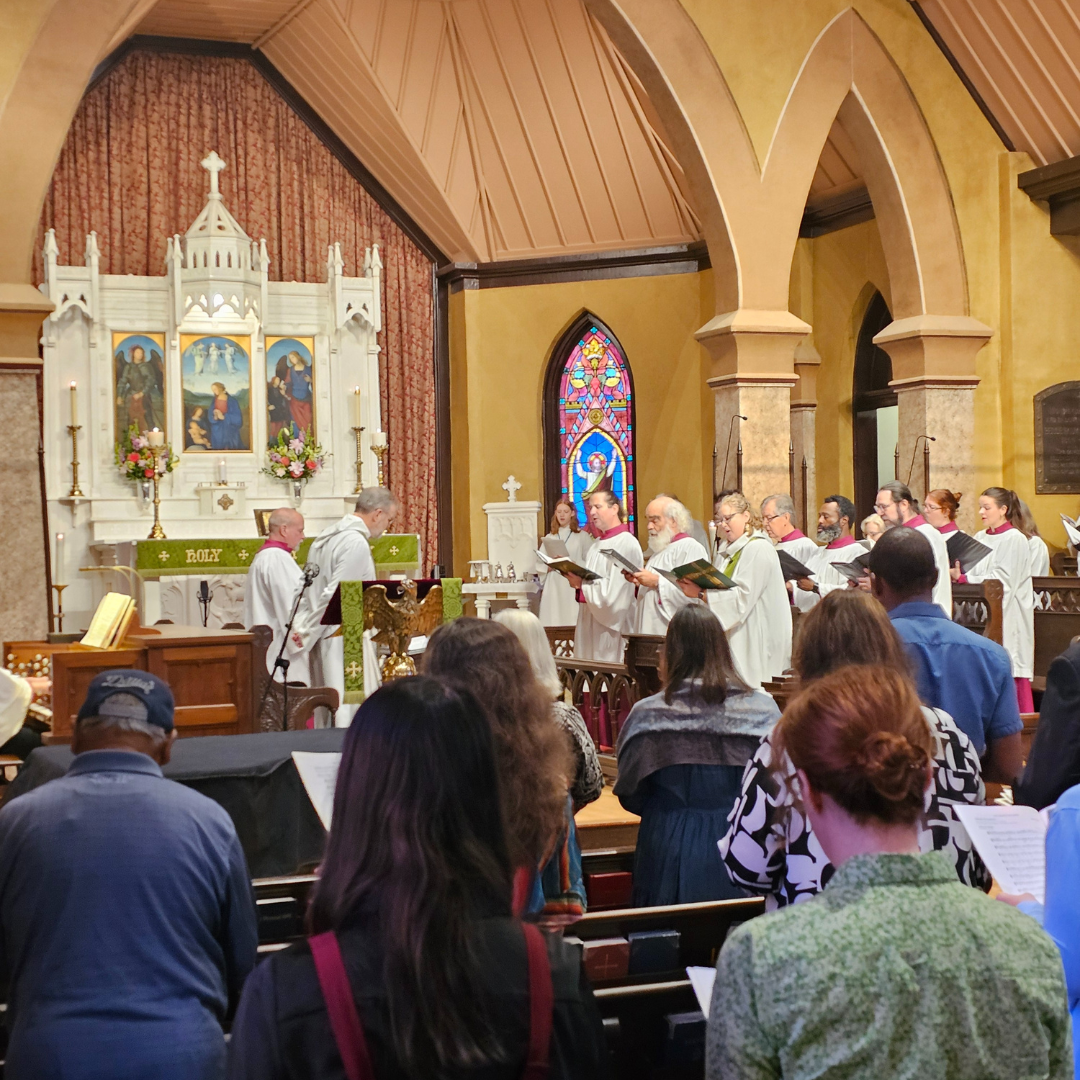
This Sunday St David’s observes the feast of its patron, David, Bishop of Menevia in Wales. Our music, beginning with the Introit chant, celebrates the saint himself as well as the Church and this parish.
The text of the Introit, taken from Psalm 132, reads
I will clothe her priests with salvation, and her faithful people will rejoice and revel with great gladness.
Let us go to God’s dwelling-place; let us fall upon our knees before his footstool.
For the Lord has chosen Zion; he has desired her for his habitation.
This reminds us that each place of worship is God’s dwelling-place, an outpost of the holy and heavenly City, and that coming into the nearer (perhaps one should say ‘more focused’ or ‘more conscious’) presence of the divine is what we are about when we gather for liturgy.
Our opening hymn, ‘Christ is made the sure foundation’ [518], continues the theme. The second half of a hymn for the Office on the anniversary of the Dedication of a Church (the first part of which is found at 519), it connects the heavenly Jerusalem described in the first half with the particular church building in and about which it is being sung, and the Church universal with the local congregation. The traditional plainsong tune for this hymn – one of the great chant melodies – is found at 519; the music at 518 is taken from the concluding Alleluia section of an anthem by the great English Baroque composer Henry Purcell. Our closing hymn, ‘O God, our help in ages past’ [680], similarly prays for God’s continued presence and blessing.
Our Communion hymn turns our attention to the saints and ties their lives to ours. ‘Christ is the King! O friends upraise’ [614] was written in England around 1930; it links the lives of the ‘saints of ancient days’ and the ‘Way disciples followed then’, via an unchanging Christ and ‘the same hope’ and ‘the same faith’, to the Church’s mission today: to bring light, to proclaim and unify, and thus to fulfil God’s will. As this parish does not know the music with which this hymn is printed in the Hymnal, we sing it instead to the tune of ‘O sons and daughters, let us sing’, with the Alleluias required by that tune. Our spirits shall no doubt be as unconquerable as the word ‘unconquerable’ is when set to this (or perhaps any) tune!




Login To Leave Comment